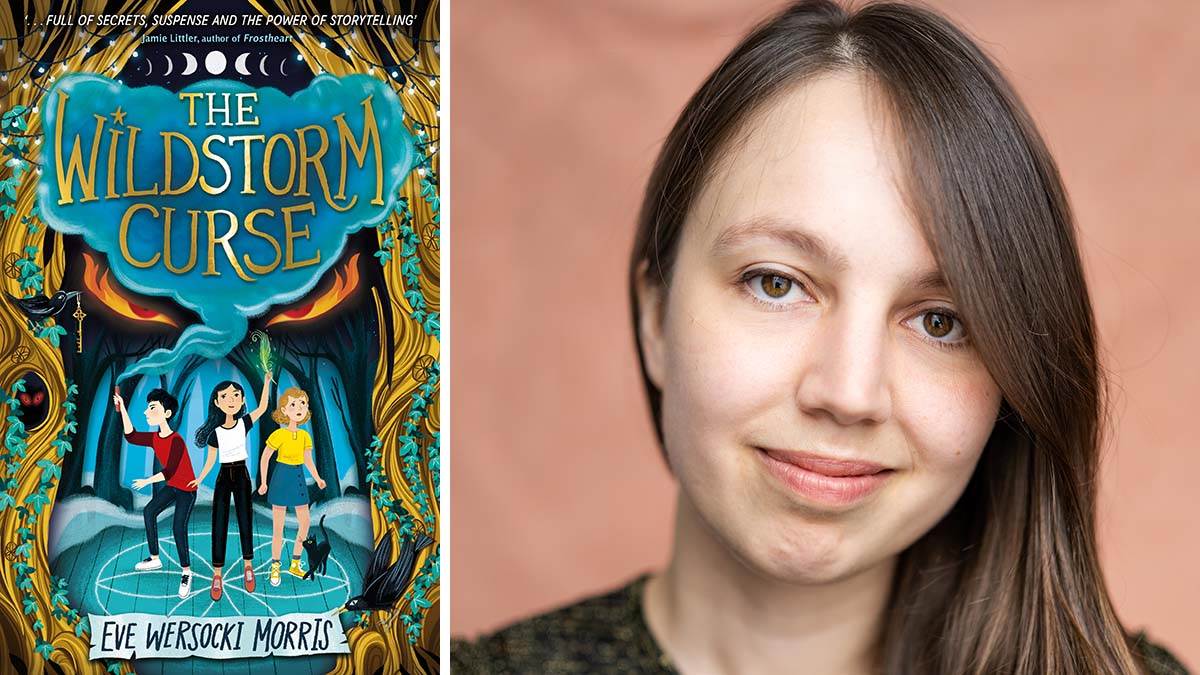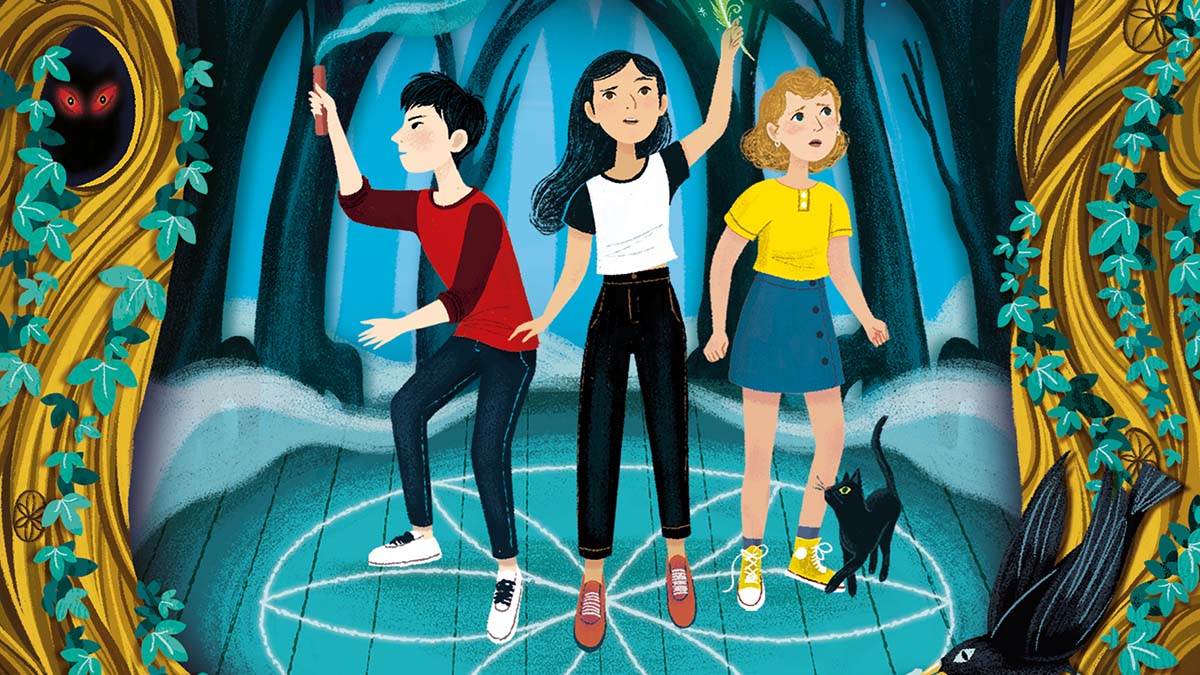5 tips to get children with dyslexia hooked on reading
Published on: 15 May 2023
Eve Wersocki Morris is an award-nominated children's author. She is also dyslexic.
Despite being told she was 'the worst speller in the class' in primary school, Eve never let being dyslexic stop her from fulfilling her dream to become a published author.
Her latest book, The Wildstorm Curse, is a mystery adventure about a cursed theatre and a monster out for revenge, featuring a dyslexic heroine who uses her power for storytelling to save the day! Here are Eve's tips for getting children with dyslexia hooked on reading...

Photo: Yellowbelly
1. You're never too old to read aloud together
I really struggled to read as a child. When I was 12, I had the reading age of an eight-year-old and my parents were understandably very concerned. But I still loved stories and books.
I think this was because my parents, especially my dad, spent a lot of time reading aloud with me. Even when I was a young teenager, we'd take it in turns to read chapters. I was a theatrical kid so loved doing funny voices and getting a laugh from my audience! And best of all, we'd talk about the books and really share the story together.
2. Listen to audiobooks and also get the physical books
Many hours of my childhood were spent in a car, driving to some soggy but enjoyable part of the countryside. On these long journeys, we listened to a lot of audiobooks and dramatisations. We listened to some stories so often that my sister and I would mouth along with the words!
Kids love revisiting their favourite stories and I found it gave me a surge of confidence to read the physical books by myself. Even though I had basically memorised them from the audiobook, I enjoyed the feeling of being a more fluent reader.
I felt a lot of peer pressure from friends to read what they were reading – they read big, impressive books like His Dark Materials, but it took me an hour to get through the first page! For those books which were too much for me to read, I just listened to them on audiobook (often in the car with my family) so I could still talk about them with my friends.
3. Let children pick their own books
Giving children ownership over what they read is a great way to build confidence and a passion for books. I remember feeling so grown up whenever I was given the opportunity to pick my own book at the library or bookshop. Of course, sometimes I picked books which were difficult for me and I read them very slowly, but that was my choice. I still loved those books because I had chosen them.
Nothing should be out of bounds.
I think it's important to avoid discouraging books because they might be 'too hard' or 'too young'; a child may have gravitated towards a heavily illustrated book because it looks more manageable and that's their choice.

Pic: Paola Escobar
4. Watch TV and films with subtitles on
My main method for coping with my dyslexia is memory. I have a very visual memory – probably related to having a 'cinematic' imagination when I'm inventing stories – and I've built up a bank of words as images in my head. So I read by recognising words rather than breaking them down.
I still find it hard to interpret a new name or uncommon word, but by a process of repetition and recognition my reading has sped up over the years. Seeing and hearing the words again and again on a screen can help with this process. When you're dyslexic words can seem overwhelming (even now I sometimes feel like I'm trying to read a foreign language!) so seeing words in the fun context of watching TV or a film can be helpful.
5. Give them role models with dyslexia
When I was officially diagnosed aged 12, the first thing I did when I got home was to Google 'authors with dyslexia'. I found F. Scott Fitzgerald and Agatha Christie. This calmed my nerves a little, but I couldn't find many modern examples. And I was pretty sure Fitzgerald and Christie had never done a doctor's test to find out if they were officially dyslexic...
Today, celebrities are more open about having dyslexia: Keira Knightley, Steven Spielberg and Tom Holland to name a few. Yep, Spider-Man is dyslexic and he still manages to save the world every other week!
Yet celebrity role models are a funny thing. At a school recently, I overheard a teacher tell a student, 'X celebrity is dyslexic and they've achieved amazing things' and the student replied 'Yes, well, they're special.' So I think it's also important to find role models closer to home – whether they be teachers, parents or adult relatives (or even a local dyslexic author they can meet in real life!). It's important to show children how everyday people can be dyslexic but still love books.
Being told you're different really knocks your confidence, especially when you're young. Above all, I think it's important to show dyslexic children that reading is for them; they can love stories, they can share stories and they can tell their own stories.
Dyslexia is a wide spectrum and not everyone experiences it in the same way. These methods worked for me when I was younger and I hope they help young people today.
The Wildstorm Curse by Eve Wersocki Morris is out now. For event enquiries visit www.evewersockimorris.co.uk
Topics: Dyslexia, Reading for pleasure, Features, Reading Tips
Read our review
Author: Eve Wersocki Morris
Kallie and her new friends at theatre camp must fight an ancient evil. This thrilling and action-packed story celebrates unlikely yet worthy heroes, like Kallie, who is dyslexic but loves stories.
Booklist
Dyslexia-friendly books
We've put together a list of brilliant books that are perfect for children with dyslexia or other reading difficulties.







